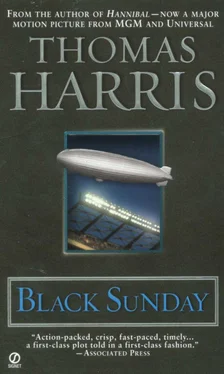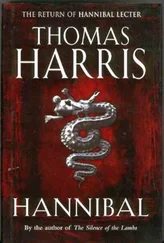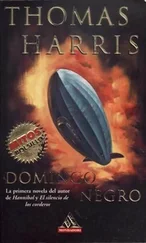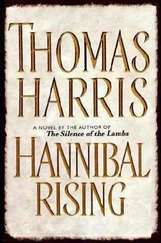First Mate Mustapha Fawzi was a reasonable man and not a brave one. At midnight when he returned to the ship, Fasil had a brief conversation with him. In one hand Fasil held a large black revolver. In the other he held two thousand dollars. He inquired about the health of Fawzi’s mother and sister in Beirut, then suggested that their continued health depended largely on Fawzi’s cooperation. The thing was quickly done.
It was seven p.m. Eastern Standard Time when the telephone rang in Michael Lander’s house. He was working in his garage and picked up the extension. Dahlia was mixing a can of paint.
From the amount of line noise, Lander guessed the caller was very far away. He had a pleasant voice with a British clip, similar to Dahlia’s. He asked for the “lady of the house.”
Dahlia was at the phone in an instant and began a rather tedious conversation in English about relatives and real estate. Then the conversation was punctuated with twenty seconds of rapid-fire slangy Arabic.
Dahlia turned from the phone, covering the mouthpiece with her hand.
“Michael, we have to pick up the plastique at sea. Can you get a boat?”
Lander’s mind worked furiously. “Yes. Make sure of the rendezvous point. Forty miles due east of the Barnegat Light a half hour before sunset. We’ll make visual contact with the last light and close after dark. If the winds are over force five, postpone it for exactly twenty-four hours. Tell him to pack it in units one man can lift.”
Dahlia spoke quickly into the telephone, then hung up.
“Tuesday the twelfth,” she said. She was looking at him curiously. “Michael, you worked that out rather quickly.”
“No, I didn‘t,” Lander said.
Dahlia had learned very early never to lie to Lander. That would be as stupid as programing a computer with half-truths and expecting accurate answers. Besides, he could always tell when she had even the temptation to lie. Now she was glad that she had confided in him from the beginning on the arrangements for bringing in the plastique.
He listened calmly as she told him what had happened on the ship.
“Do you think Muzi put Larmoso up to it?” he asked.
“Fasil doesn’t know. He never had a chance to question Larmoso. We have to assume Muzi put him up to it. We can’t afford to do otherwise, can we, Michael? If Muzi dared to interfere with the shipment, if he planned to keep our advance payment and sell the plastique elsewhere, then he has sold us out to the authorities here. He would have to do that for his own protection. Even if he has not betrayed us, he would have to be dealt with. He knows far too much, and he has seen you. He could identify you.”
“You intended to kill him all along?”
“Yes. He is not one of us, and he is in a dangerous business. If the authorities threatened him on some other matter, who knows what he might tell them?” Dahlia realized she was being too assertive. “I couldn’t stand the thought of him always being a threat to you, Michael,” she added in a softer voice. “You didn’t trust him either, did you, Michael? You had a pickup at sea all worked out in advance, just in case, didn’t you? That’s amazing.”
“Yeah, amazing,” Lander said. “One thing. Nothing happens to Muzi until after we have the plastic. If he has gone to the authorities, to get immunity for himself in some other matter or whatever, the trap will be set at the dock. As long as they think we are coming to the dock, they are less likely to fly a stakeout team out to the ship. If Muzi is hit before the ship comes in, they’ll know we’re not coming to the dock. They’ll be waiting for us when we go out to the ship.” Suddenly Lander was furious and white around the mouth. “So Muzi was the best your camel-shit mastermind could come up with.”
Dahlia did not flinch. She did not point out that it was Lander who went to Muzi first. She knew that this anger would be suppressed and added to Lander’s general fund of rage as, irresistibly, his mind was drawn back to the problem.
He closed his eyes for a moment. “You’ll have to go shopping,” he said. “Give me a pencil.”
NOW THAT HAFEZ NAJEER ANDAbu Ali were dead, only Dahlia and Muhammad Fasil knew Lander’s identity, but Benjamin Muzi had seen him several times, for Muzi had been Lander’s first link to Black September and the plastic.
From the beginning, the great problem had been obtaining the explosives. In the first white heat of his epiphany, when he knew what he would do, it had not occurred to Lander that he would need help. It was part of the aesthetic of the act that he do it alone. But as the plan flowered in his mind, and as he looked down on the crowds again and again, he decided they deserved more than the few cases of dynamite that he could buy or steal. They should have more attention than the random shrapnel from a shattered gondola and a few pounds of nails and chain.
Sometimes, as he lay awake, the upturned faces of the crowd filled his midnight ceiling, mouths open, shifting like a field of flowers in the wind. Many of the faces became Margaret’s. Then the great fireball lifted off the heat of his face and rose to them, swirling like the Crab nebula, searing them to charcoal, soothing him to sleep.
He must have plastic.
Lander traveled across the country twice looking for plastic. He went to three military arsenals to case the possibilities for theft and saw that it was hopeless. He went to the plant of a great corporation that manufactures baby oil and napalm, industrial adhesives and plastic explosives, and he found that plant security was as tight as that of the military and considerably more imaginative. The instability of nitroglycerine ruled out extracting it from dynamite.
Lander checked newspapers avidly for stories about terrorism, explosions, bombs. The pile of clippings in his bedroom grew. It would have offended him to know that this was patterned behavior, to know in how many bedrooms sick men keep clippings, waiting for their day. Many of Lander’s clippings carried foreign datelines—Rome, Helsinki, Damascus, The Hague, Beirut.
In a Cincinnati motel in mid-July the idea came to him. He had flown over a fair that day and was getting mildly drunk in the motel lounge. It was late. A television set was suspended from the ceiling over the end of the bar. Lander sat almost directly beneath it, staring into his drink. Most of the customers were facing him, turned on their stools, the bloodless light of the TV playing over their uplifted faces.
Lander stirred and came alert. Something in the expression on the faces of the customers watching television. Apprehension. Anger. Not fear exactly, for they were safe enough, but they wore the look of a man watching wolves from his cabin window. Lander picked up his drink and walked down the bar until he could see the screen. Film of a Boeing 747 sitting in the desert with heat shimmer around it. The forward end of the fuselage exploded, then the center section, and the plane was gone in a belch of flame and smoke. The program was a rerun of a news special on Arab terrorism.
Cut to Munich. The horror at the Olympic village. The helicopter at the airport. Muffled gunfire inside it as the Israeli athletes were shot. The embassy at Khartoum where the American and Belgian diplomats were slain. Al Fatah leader Yasir Arafat denying responsibility.
Yasir Arafat again at a news conference in Beirut, bitterly accusing England and the United States of aiding the Israelis in terrorist raids against the guerrillas. “When our revenge comes, it will be big,” Arafat said, his eyes reflecting double moons from the television lights.
A statement of support from Colonel Khadafy, student of Napoleon and Al Fatah’s constant ally and banker: “The United States deserves a strong slap in the face.” A further comment from Khadafy—“Goddamn America.”
Читать дальше












